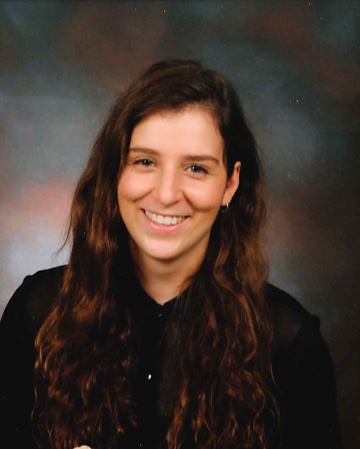Marie-Pierre Champagne

My project was heavily impacted by the health restrictions. However, I was resilient in that I changed my study programme, adapted my research project and learnt how to digitally model in 2D and 3D on my own, all without visiting my study site, located in the commune of Guidel, France. This award is a testament to my resilience and rigour and I am very proud of it.
Marie-Pierre Champagne
M.Sc. in Earth sciences, 2022
Centre Eau Terre Environnement
Supervisor: René Lefebvre
Marie-Pierre Champagne completed a bidiploma programme between the University of Rennes 1 in France and INRS, although the pandemic did not allow her to go to Rennes for her second year. Nevertheless, her work on the study of groundwater flow in Brittany (France) is of uncommon magnitude as it provides new fundamental and practical knowledge. The excellent quality of her research was unanimously acknowledged by the members of the evaluation committee and will be the subject of a scientific publication in autumn 2023.
What brought you to INRS? What do you take away from your experience?
I decided to pursue my studies at INRS because I wanted to follow the dual degree programme in geoengineering and environment in partnership with the University of Rennes 1, in France. Moreover, I was attracted by the quality of the training activities and the reputation of the professors. What I remember about INRS is the enriching encounters with colleagues from all over the world, as well as the dedicated professors.
Can you describe the challenge and impact of the research presented in your thesis?
In recent years, there has been significant population growth in the municipality of Guidel, France, and the need for water supply has increased significantly. As a result, groundwater research has been undertaken in recent years to identify potential sources. Consequent to this reconnaissance work, the Guidel site was deemed potentially suitable for supplying the municipality with drinking water. However, the site is close to a sensitive wetland, it is in a complex aquifer system and the groundwater represents a mixture of modern water and water from several thousand years ago.
The objective of my master’s work was to better understand the role of the regional flow that could bring these advanced waters to Guidel in order to ensure a sustainable supply for the municipality. My work not only developed a better understanding of the dynamics of the Guidel aquifer system, but also helped to ensure sustainable management of the aquifer for drinking water supply purposes.
What does it mean to you to receive this award?
My project was heavily impacted by the health restrictions. However, I was resilient in that I changed my study programme, adapted my research project and learnt how to digitally model in 2D and 3D on my own, all without having visited my study site, located in the municipality of Guidel, France. This award is a testament to my resilience and rigour and I am very proud of it.
What is the next chapter for you now that you have graduated?
Thanks to my master's degree, I have developed an expertise in hydrogeology that allows me to hold a position as a candidate engineer (CPI) in hydrogeology within the mine water management team of a major engineering consulting firm in Quebec. Since the beginning of my career, I have been involved in various groundwater characterization and management projects on mine sites in Quebec, Northern Ontario and Nunavut.
